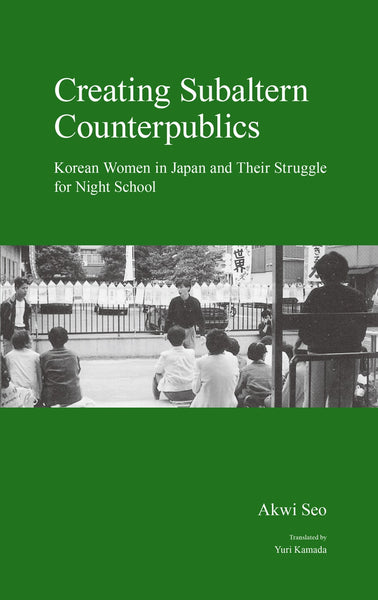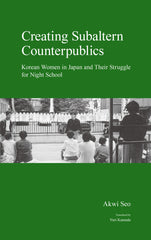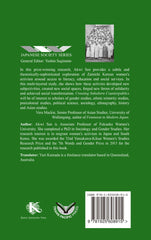Creating Subaltern Counterpublics
Many In Stock
This is a study of a political and social movement instigated by older Korean women in Japan, beginning in the 1990s. Koreans in Japan have occupied an unique position among ethnic minority groups. Until recently they constituted the largest group of "foreign nationals," yet they have been marginalized politically, socially, economically, and culturally. Korean women are doubly-disadvantaged, treated as inferior to men by both Korean and Japanese society. Furthermore, the first generation of Korean women migrants were not educated as children, rendering them functionally illiterate and, thus, triply marginalized. Late in life, when family and work responsibilities became less onerous, local authorities created educational opportunities, which the women took up in unexpected numbers, overloading the facilities. The authorities' responses effectively re-marginalized them. The elderly Korean women took a stance and, in the process, reconstituted themselves as social and political actors. This book examines that self-transformation process.
About Editors and Authors
SEO Awiki is Associate Professor at Fukuoka Women's University. He holds an MA in Sociology from the University of Toronto and a PhD in Social Science from Ochanomizu University. His research has involved conducting an empirical study of Korean women living in Japan and marriage immigrants in South Korea, focusing on the host country’s foreign policies and relationship with civil movements.
Table of contents
Figures
Tables
Photos
Acknowledgements
1 Introduction: Conceptualizing Korean women in Japan through a feminist lens
2 Between ethnic rights and women's rights movements
3 Counterpublics and the Taiheiji Independence Movement
4 Life course: Illiteracy and Night Junior High School
5 Formation of oppositional subjects
Show More >
Figures
Tables
Photos
Acknowledgements
1 Introduction: Conceptualizing Korean women in Japan through a feminist lens
2 Between ethnic rights and women's rights movements
3 Counterpublics and the Taiheiji Independence Movement
4 Life course: Illiteracy and Night Junior High School
5 Formation of oppositional subjects
6 Intergenerational solidarity and the reconstruction of ethnicity
7 Korean women in Japan and subaltern counterpublics
Notes
Bibliography
Name Index
Subject Index


